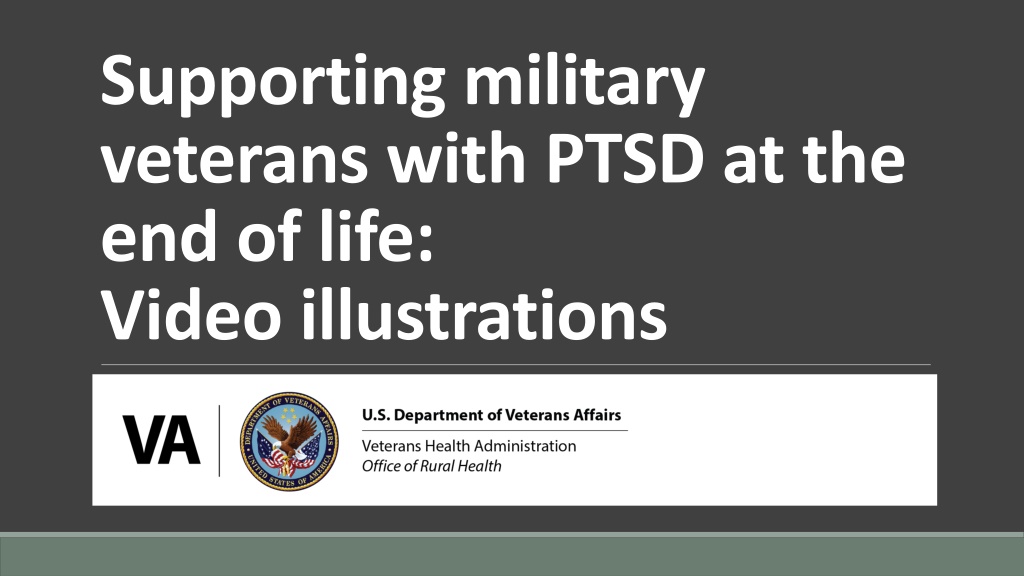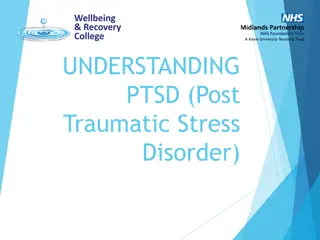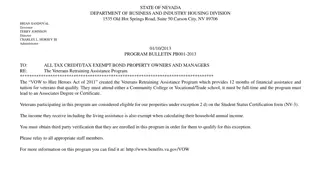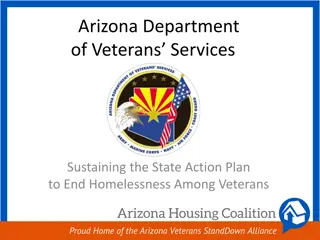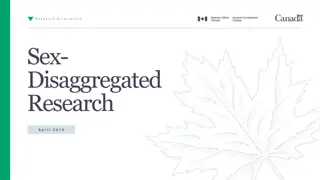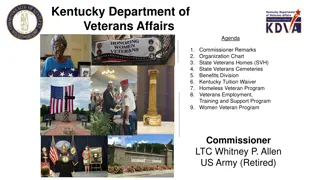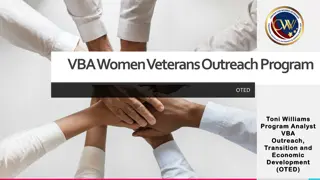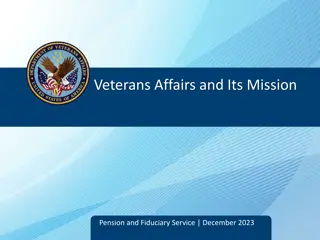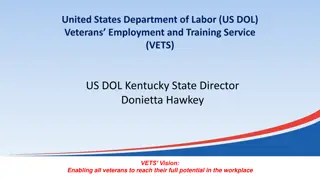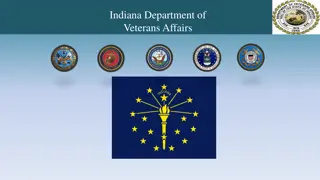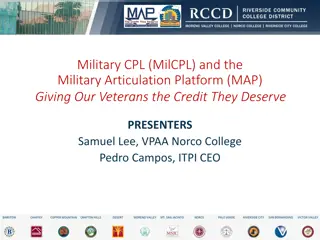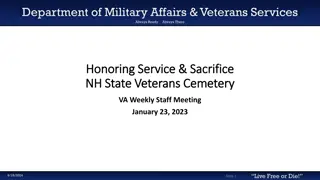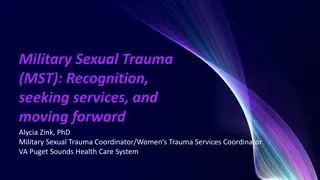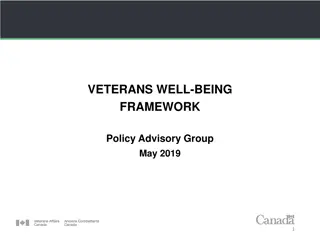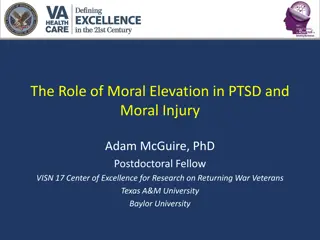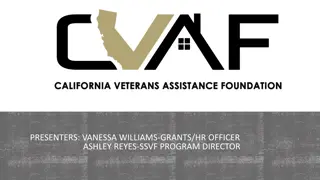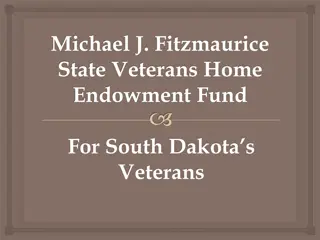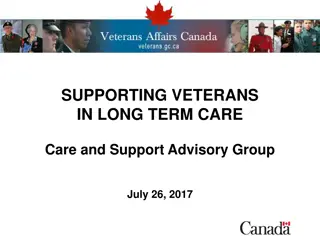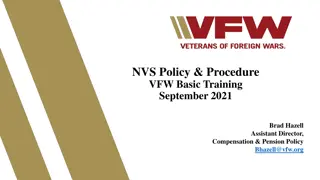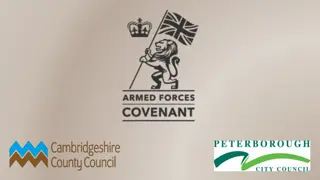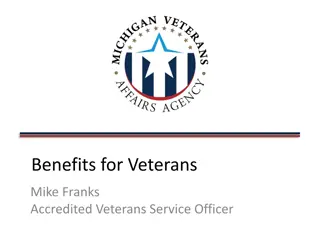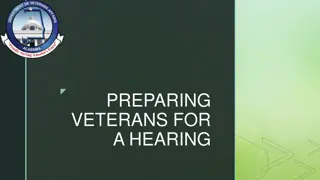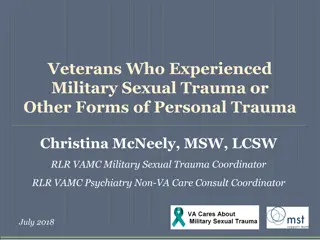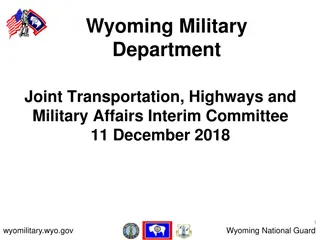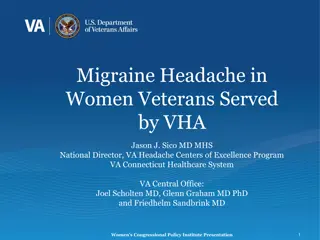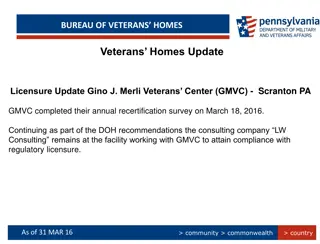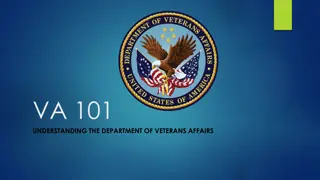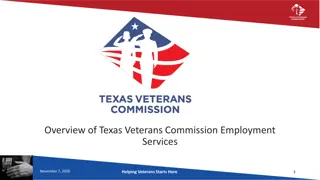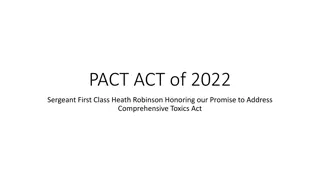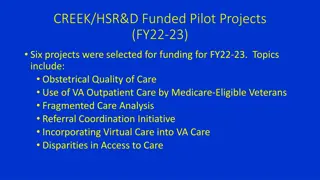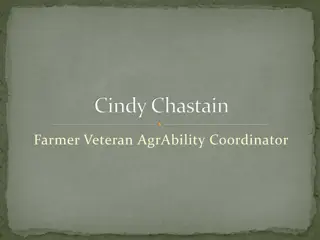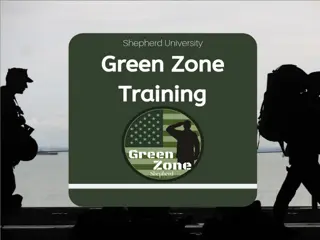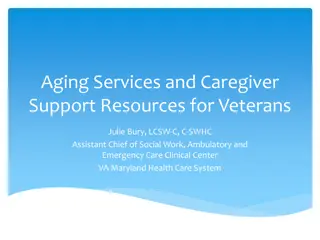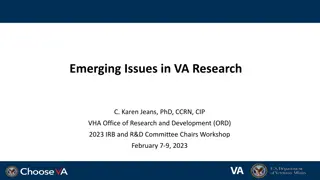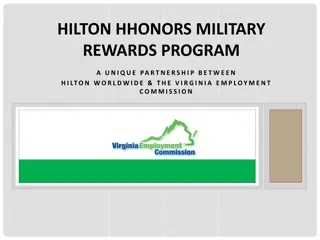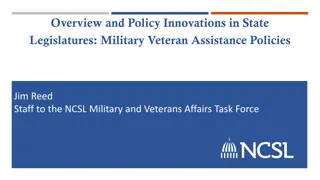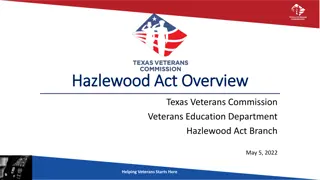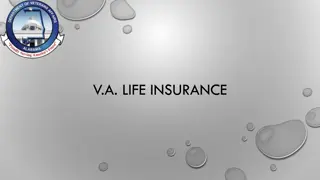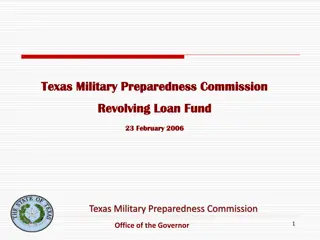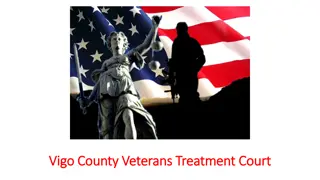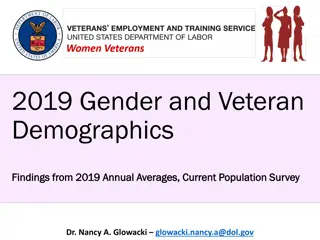Supporting Military Veterans with PTSD at End of Life: Insights and Video Illustrations
Video illustrations and insights from hospice and palliative care clinicians, focusing on supporting military veterans with PTSD at the end of life. The team of professionals provides tips and personal insights, along with three videos showcasing veterans discussing trauma and compassionate care. Viewers are encouraged to explore signs and symptoms of PTSD, nurse responses, and engage in discussions around these critical issues.
Download Presentation

Please find below an Image/Link to download the presentation.
The content on the website is provided AS IS for your information and personal use only. It may not be sold, licensed, or shared on other websites without obtaining consent from the author. Download presentation by click this link. If you encounter any issues during the download, it is possible that the publisher has removed the file from their server.
E N D
Presentation Transcript
Supporting military veterans with PTSD at the end of life: Video illustrations
Thank you Hospice and Palliative Care Clinicians who provided insights via NHPCO survey and our focus groups VA Program for Hospice and Palliative Care
our team Geropsychologist Assoc. Director Education and Evaluation, New England GRECC Anna Etchin, RN, PhD Jennifer Moye, PhD Nurse Researcher Fellow, Translational Research Center for TBI and Stress Disorders Rachel Weiskittle, PhD Anica Pless Kaiser, PhD Geropsychologist Fellow, New England GRECC Psychologist Investigator, National Center for PTSD, Behavioral Science Division Hannah Bashian, M.Ed Zachary Sager, MD Geropsychology Intern VA Boston Hospice & Palliative Care Physician and Psychiatrist GRECC & Division of Geri/ Pall Kelly O Malley, PhD Lynn Korsun, BS Geropsychologist VA Boston CLC Project Manager National Center for PTSD, Behavioral Science Division
3 Videos TECH TIPS PERSONAL TIPS Reduce home bandwidth (e.g., close internet tabs, turn off other videos/ streaming) These videos show veterans discussing or re- experiencing trauma and show compassionate care by hospice and palliative care clinicians. If problems, open separately in google While not graphic in nature, the videos may be emotionally evocative. QR Code for YouTube Playlist
Video 1 Look for: Signs and Symptoms of PTSD
Video 1 Discussion Have you experienced this? How else have you seen PTSD present?
Video 2 Look for: What do you think the nurse is doing in her response?
Video 2 Discussion What do you think she is doing well? What do you find hard in such situations?
Video 3 Look for: What do you think the nurse is doing in his response?
Video 3 Discussion What skills is Chad applying? What else have you tried in such situations?
What did you think? What should we do next? Take out your smart phone Open camera & start to take picture of QR code It should take you to our 6-item feedback survey Or see link in chat Or answer questions in chat QR Code for Survey to provide feedback
Thank you Questions
3 VIDEOS ABOUT 2 VETERANS Les, (Married) VN Tunnel Rat with COPD, Cognitive Impairment, Flashbacks Helen, (Single) VN Nurse with Cancer and avoidance
TRAUMA EXPOSURE In general population, 50% to 90% of older adults have been exposed to at least 1 potentially traumatic event in their lifetime In veteran population, On average, older adults have experienced of 3 traumatic events in their lifetime 4 3 2 1 0 Exposures National Health and Resilience in Veterans Study, Creamer & Parslow (2008); Pietrzak & Cook, 2013; Spitzer et al. (2008); Forman-Hoffman et al. (2012); Monson, Lonergan, Caron, & Brunet (2016).
POSTTRAUMATIC STRESS DISORDER (PTSD) Traumatic Experience + Re-experiencing Avoidance Negative Cognitions and Mood Arousal > 1 month and cause clinically significant distress or functional impairment
Our Starting Place: NHPCO Survey (N=157) & Focus Groups (N=97) Cluster Re-experiencing the emotions of combat % 27% Qual - More common Memories Dreams/ nightmares Flashbacks Emotional upset Avoid reminders Qual - Less Common o Phys Rxn o Avoidance memories Avoidance of trauma reminders Negative beliefs about self, others, world 24% Negative beliefs, distrust Fear, horror, guilt, shame Blame Feeling cut off Irritable/ angry Can t sleep Super-alert Isolating/ reclusive / Stoic Family conflict Telling stories o Trouble remembering o Loss of interest o Unable to have positive feelings o Risky behavior o Jumpy/startled o Can t concentrate 19% Elevated Arousal 25% Other 6%
